Can Essential Oils Damage Liver
Essential oils have gained popularity for their various benefits, from relieving stress and anxiety to boosting the immune system.
Recent studies have raised concerns about the potential for liver damage caused by certain essential oils.
This article explores the benefits of essential oils, types that may cause liver damage, symptoms of liver damage, and tips to prevent essential oils harmful when using essential oils.
Stay informed for safe and effective use of essential oils for your well-being.
Key Takeaways:
What Are Essential Oils?
Essential oils are concentrated liquids containing volatile aroma compounds extracted from plants, known for their distinct scents and potential therapeutic properties.
These oils are typically derived through various methods such as steam distillation, solvent extraction, or cold pressing, depending on the plant source. Commonly used plants for essential oil extraction include lavender, peppermint, tea tree, and eucalyptus, each having its unique chemical composition. The aromatic compounds found in essential oils are predominantly terpenes, phenylpropanoids, and aldehydes, responsible for their characteristic fragrances and potential health benefits.
How Are Essential Oils Used?
Essential oils are commonly used in aromatherapy, either through inhalation or topical application, for their potential health benefits and therapeutic effects.
When diffusing essential oils, the aromatic molecules are dispersed into the air, creating a calming or invigorating atmosphere depending on the oil used. Massage oils are another popular method of application, where the oils are diluted with a carrier oil and applied directly to the skin during a massage. In bath products, essential oils can be added to bath salts or bath bombs for a relaxing bath experience. Understanding the chemical composition of each oil is crucial for safe and effective use, as some oils may not be suitable for ingestion or direct skin contact.
What Are the Benefits of Essential Oils?
Essential oils offer a range of benefits, including antioxidant activity, potential health improvements, and scientific evidence supporting their therapeutic effects.
Studies have shown that essential oils exhibit powerful antioxidant properties, which help combat oxidative stress in the body and reduce inflammation. These natural extracts possess antimicrobial effects that can help fight off harmful bacteria, viruses, and fungi.
The aromatherapy benefits of essential oils play a significant role in enhancing overall well-being by promoting relaxation, reducing anxiety, and improving sleep quality. Research has demonstrated that certain essential oils can positively impact mood and mental health, offering a holistic approach to maintaining emotional balance.
Relieves Stress and Anxiety
Essential oils have been shown to help relieve stress and anxiety through their calming aromas and potential physiological effects on the body.
These natural extracts, derived from plants, contain compounds that can interact with the olfactory system, triggering responses in the brain that promote relaxation and reduce feelings of tension.
Research suggests that inhaling certain essential oils can modulate neurotransmitter activity, such as serotonin and dopamine, which are key players in mood regulation. This modulation may contribute to the soothing and anti-anxiety effects experienced by individuals using essential oils for stress relief.
The act of inhaling pleasant scents alone can trigger the release of endorphins, the body’s natural ‘feel-good’ chemicals, further enhancing the calming experience.
Improves Sleep Quality
Certain essential oils have been found to improve sleep quality by promoting relaxation, reducing insomnia symptoms, and creating a conducive environment for rest.
By leveraging the capabilities of aromatherapy, individuals can benefit from the calming effects of essential oils such as lavender, chamomile, and bergamot. The gentle fragrance can help to soothe the mind and body, easing the transition into a restful state.
Studies have shown that inhaling these aromatic compounds can stimulate the limbic system, the part of the brain responsible for emotions and memories, thereby eliciting a sense of calm and tranquility.
Incorporating essential oils into a bedtime routine can signal to the body that it is time to unwind, signaling the release of sleep-inducing hormones like melatonin.
Boosts Immune System
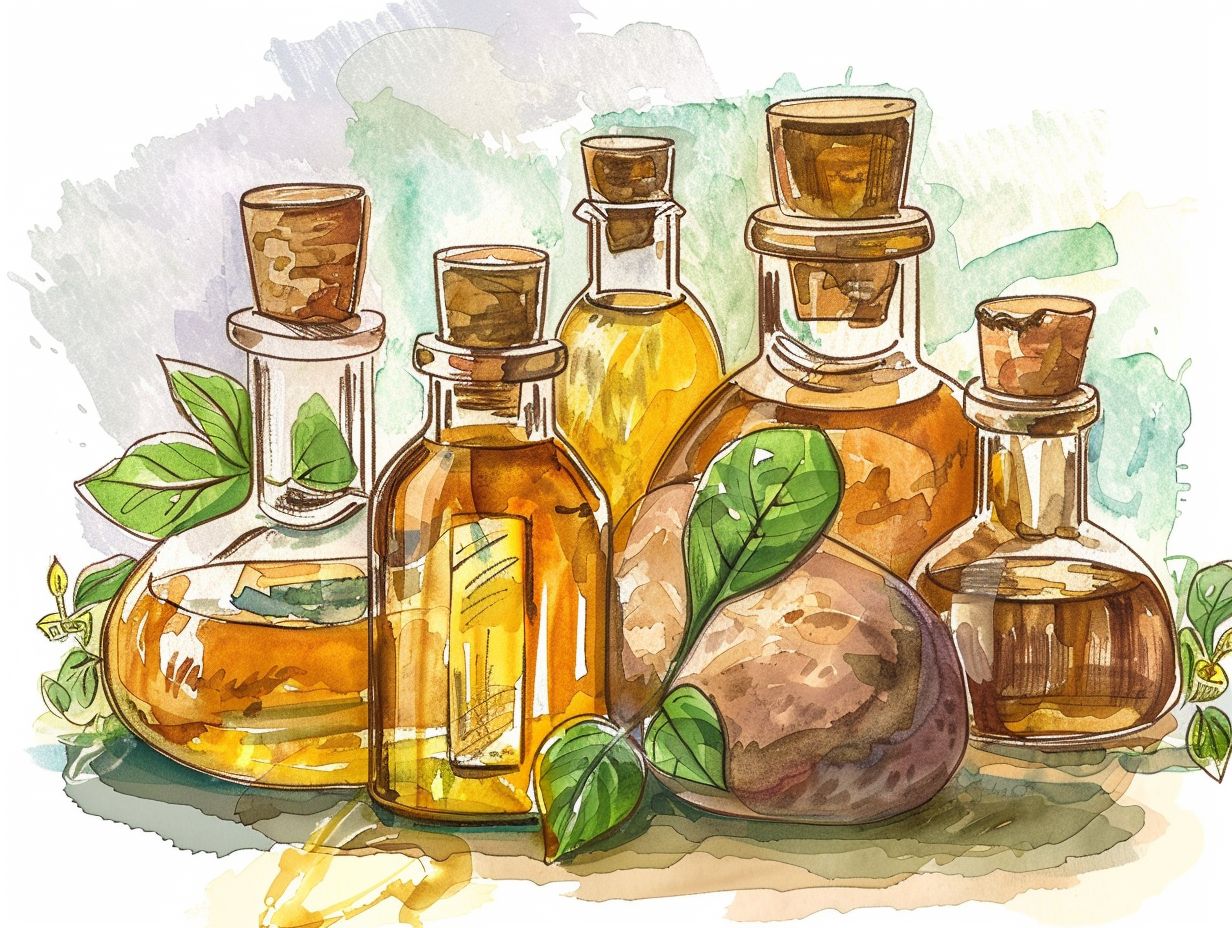
Essential oils have been used for centuries in traditional medicine for their potential immune-boosting properties. These natural extracts, derived from plants, contain various compounds that may help support the body’s defense mechanisms.
When inhaled or applied topically, certain essential oils can promote a healthy immune response by activating immune cells and increasing antioxidant activity.
The antimicrobial and anti-inflammatory properties of essential oils can aid in protecting the body from harmful pathogens, reducing the risk of infections and illnesses.
Reduces Inflammation
Certain essential oils possess anti-inflammatory properties that can help reduce inflammation, alleviate pain, and support the body’s natural healing processes.
One of the key benefits of these essential oils is their ability to target specific pathways involved in the inflammatory response, such as reducing levels of pro-inflammatory cytokines. By modulating these pathways, essential oils can help to manage pain associated with conditions like arthritis, muscle soreness, or even headaches.
In addition, the application of essential oils through massages or aromatherapy has been shown to have a relaxing effect on the body, which can further aid in reducing stress-induced inflammation. This dual approach of targeting both physical and emotional triggers of inflammation makes essential oils a versatile option for those seeking natural relief.
Can Essential Oils Cause Liver Damage?
While essential oils are generally considered safe when used properly, certain essential oils may pose a risk of liver damage due to their interaction with hepatotoxic agents and individual sensitivities.
Essential oils are concentrated plant extracts that are popular for their therapeutic benefits, but it is crucial to be aware of their potential impact on liver health. Research suggests that oils such as peppermint, eucalyptus, and citrus oils may have hepatotoxic effects in high doses or with prolonged use.
Individuals with pre-existing liver conditions or those using certain medications should exercise caution when using essential oils. Understanding the hepatoprotective properties of some oils like rosemary and ginger can offer a balanced perspective on their potential benefits and risks.
Studies on Essential Oils and Liver Damage
Various pharmacological studies have investigated the impact of essential oils on liver toxicity, exploring potential bio-markers and mechanisms underlying liver damage.
One area of focus in these studies is the assessment of liver enzymes such as ALT and AST, which are commonly elevated in cases of liver injury, providing valuable insight into the extent of liver damage caused by essential oils. Researchers have identified oxidative stress as a key player in the development of liver toxicity, with essential oils exerting antioxidant properties that may mitigate oxidative damage and protect liver cells.
Essential Oils That May Cause Liver Damage
Certain essential oils containing toxic compounds, electrophiles, or molecules that interfere with glutathione metabolism may pose a risk of liver damage when used in high doses or ingested.
These essential oils can exert their hepatotoxic effects by overwhelming the liver’s detoxification pathways, leading to oxidative stress and cell damage.
Toxins in the oils can trigger the formation of electrophiles, which are reactive molecules that can bind to proteins and DNA within liver cells, disrupting their normal functions.
The liver’s ability to produce and utilize glutathione, a vital antioxidant and detoxifying agent, is crucial in neutralizing these harmful substances and protecting liver tissue.
What Are the Symptoms of Liver Damage?
Symptoms of liver damage may include jaundice, nausea, abdominal pain, and fatigue, indicating potential liver dysfunction and the need for medical evaluation.
Jaundice, a yellowing of the skin and eyes, is a classic sign of liver issues, caused by the buildup of bilirubin.
Nausea and vomiting may occur due to the liver’s role in processing nutrients and eliminating toxins.
Abdominal discomfort, swelling in the stomach, and loss of appetite can also be linked to liver problems.
Fatigue, tiredness, and weakness may persist as the liver struggles to perform its crucial metabolic functions efficiently.
Jaundice
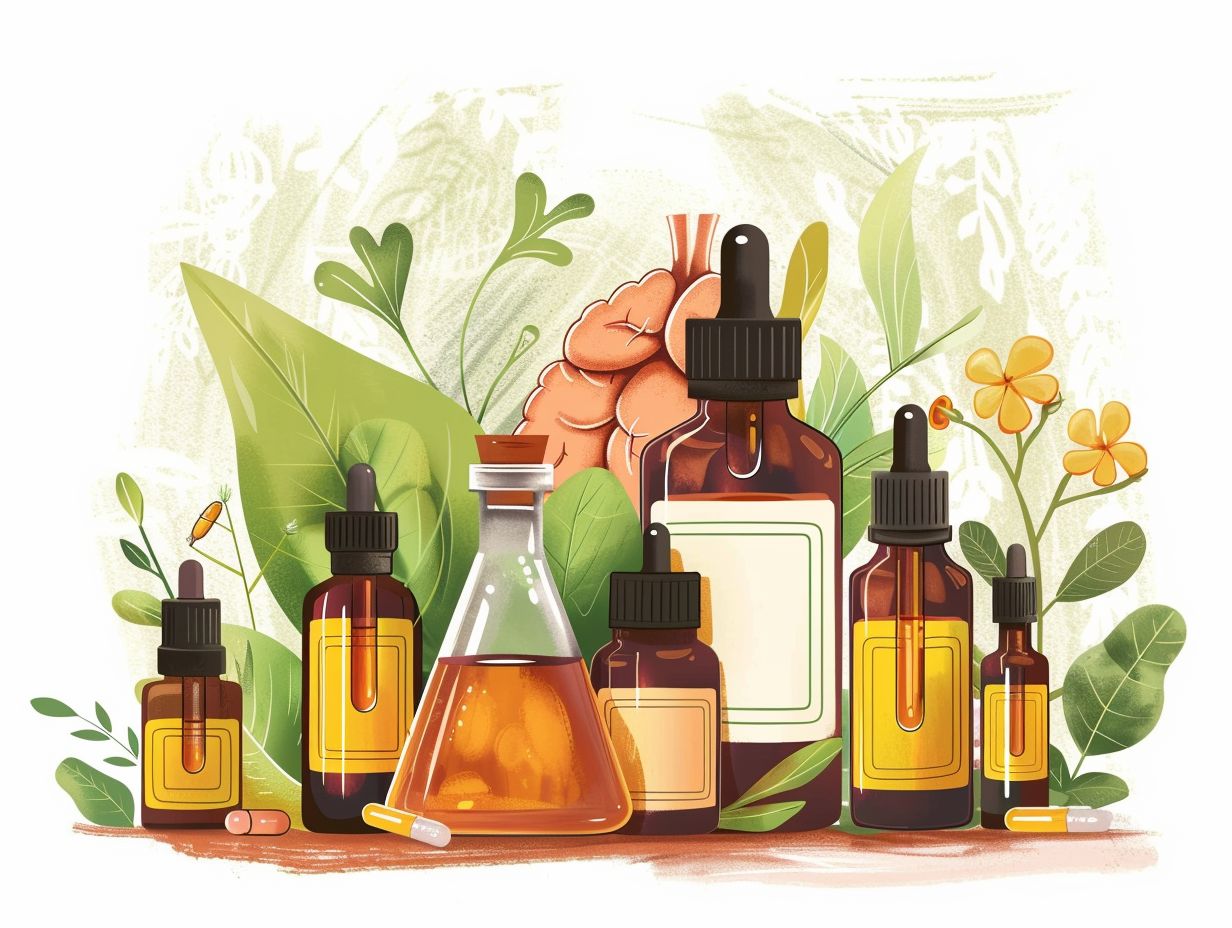
When the liver is not functioning correctly, it may struggle to process bilirubin efficiently, leading to its accumulation in the bloodstream. Bilirubin is a byproduct of the breakdown of red blood cells. In normal circumstances, the liver processes and excretes bilirubin properly. Liver damage can disrupt this process, causing bilirubin levels to rise, resulting in the characteristic yellow hue associated with jaundice.
Hepatoprotective measures like maintaining a healthy diet, avoiding excessive alcohol consumption, and managing underlying liver conditions are crucial in managing jaundice and preserving liver function. Certain medications and supplements may aid in liver repair and support overall liver health.
Nausea and Vomiting
Nausea and vomiting are common signs of liver damage, often associated with exposure to hepatotoxic agents or substances that affect liver function.
The liver plays a pivotal role in metabolism, filtering out toxins and maintaining overall health. When the liver is compromised, it can result in a range of symptoms, including gastrointestinal distress. Hepatotoxic agents can disrupt the normal functioning of the liver, leading to an imbalance in bile production and metabolism, which can trigger nausea and vomiting.
Managing these symptoms involves identifying and eliminating the source of liver damage, adopting a healthy diet to support liver function, and seeking medical intervention when necessary.
Fatigue and Weakness
Fatigue and weakness can be indicative of liver damage, potentially linked to oxidative damage and metabolic imbalances affecting overall energy levels.
When the liver is not functioning optimally, it can lead to a build-up of toxins in the body, contributing to feelings of exhaustion and physical weakness. Oxidative damage in the liver cells can further exacerbate these symptoms by disrupting the body’s ability to produce energy efficiently.
Research has suggested that oxidative stress plays a significant role in the development of fatigue, as it impairs mitochondrial function and affects the body’s energy production pathways. In cases of liver dysfunction, addressing oxidative damage is crucial in managing fatigue and enhancing overall vitality.
Abdominal Pain
Abdominal pain is a common symptom of liver damage, often attributed to the presence of toxins, electrophiles, or irritants affecting liver health and function.
When the liver is compromised, it struggles to efficiently process harmful substances, leading to an accumulation of these toxic compounds in the body.
Electrophiles, which are reactive molecules that can damage cells, can also contribute to gastrointestinal discomfort by triggering inflammatory responses.
Managing abdominal symptoms in cases of liver damage involves a multipronged approach, including lifestyle modifications, dietary changes, and medical interventions targeted at supporting liver function and reducing inflammation.
How Can Liver Damage from Essential Oils Be Prevented?
Preventing liver damage from essential oils involves ensuring proper liver protection, implementing detoxification strategies, and regulating the dose and duration of essential oil use.
One of the key ways to protect the liver from essential oil-related damage is to choose high-quality, pure oils from reputable sources. Contaminated or adulterated oils can put a strain on the liver due to impurities.
Additionally, monitoring the dosage of essential oils is crucial. Overconsumption can overload the liver’s detoxification pathways, leading to potential damage over time. Consider consulting with a healthcare practitioner knowledgeable about essential oils to determine safe and effective dosages tailored to your individual needs.
Dilute Essential Oils Properly
Properly diluting essential oils before use, especially in aromatherapy applications, helps reduce the concentration of volatile organic compounds and minimizes the risk of adverse effects on the liver.
Dilution in essential oil usage is a crucial step that cannot be overlooked. When essential oils are in their concentrated form, they contain a high level of potent compounds that may be too strong for direct application. By diluting them, you not only make them safer for use but also enhance their efficacy. This process allows for better absorption through the skin and provides longer-lasting effects. Dilution helps in creating customized blends tailored to specific needs, ensuring optimal benefits while mitigating any potential harm.
Use Essential Oils Safely
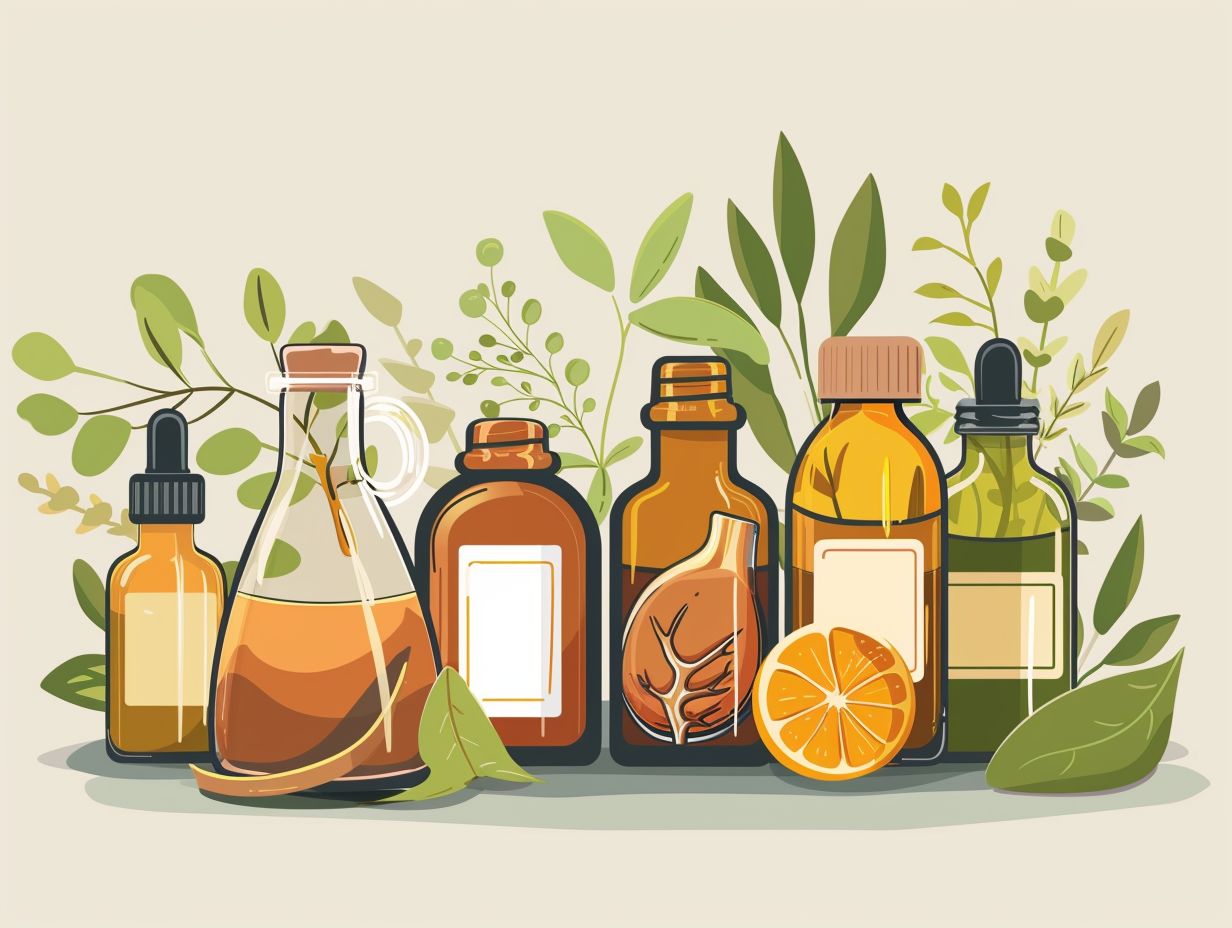
Essential oils are composed of various chemical compounds such as terpenes, phenols, aldehydes, and esters, each with specific properties and potential health effects. When using essential oils, it is crucial to dilute them properly before application to prevent skin irritation or sensitization. Certain essential oils may interact with medications or have contraindications for specific medical conditions, emphasizing the importance of consulting a healthcare professional before use.
Quality control measures play a significant role in ensuring the safety of essential oils. Opting for reputable brands that provide information on sourcing, extraction methods, and testing procedures can help consumers make informed choices. Look for certified organic essential oils to minimize exposure to pesticides, synthetic additives, or contaminants that could potentially harm liver function.
Consult a Healthcare Professional Before Use
Seeking advice from a healthcare professional before using essential oils is essential to assess individual risks, potential liver toxicity, and metabolic pathways that may influence the effects of essential oil compounds.
Healthcare providers can offer personalized guidance on the safe use of essential oils based on individual health conditions and medication interactions. Liver toxicity is a serious concern when using certain essential oils in high concentrations or for prolonged durations, as these oils can overload the liver’s detoxification systems. Metabolic interactions with specific enzymes can alter the metabolism of essential oil components, affecting their efficacy and safety. By understanding these factors, one can navigate the vast world of essential oils with caution and knowledge-based decision making.
Frequently Asked Questions
Can Essential Oils Damage Liver?
Yes, essential oils can potentially damage the liver when used improperly or in large amounts. Some essential oils contain high levels of compounds that can be toxic to the liver if ingested or applied topically in excessive amounts.
Which Essential Oils Are Known to Cause Liver Damage?
Some essential oils that have been linked to liver damage include eucalyptus, tea tree, camphor, and pennyroyal. These oils contain high levels of specific compounds that can be toxic to the liver if used improperly.
What Are the Symptoms of Liver Damage from Essential Oils?
Symptoms of liver damage from essential oils may include nausea, vomiting, abdominal pain, jaundice, fatigue, and loss of appetite. If you experience these symptoms after using essential oils, seek medical attention immediately.
How Can I Safely Use Essential Oils Without Damaging My Liver?
To use essential oils safely and avoid potential liver damage, always dilute the oils properly and follow recommended usage guidelines. It is also important to avoid ingesting essential oils and to discontinue use if you experience any adverse reactions.
Can Certain Groups of People Be More Susceptible to Liver Damage from Essential Oils?
Yes, certain groups of people may be more susceptible to liver damage from essential oils. This includes pregnant and nursing women, children, and individuals with pre-existing liver conditions. It is important to consult with a healthcare professional before using essential oils in these cases.
Are There Any Alternatives to Essential Oils That Are Safer for the Liver?
Yes, there are alternatives to essential oils that may be safer for the liver. These include carrier oils, herbal infusions, and hydrosols. However, it is still important to use caution and follow proper usage guidelines with these alternatives as well.



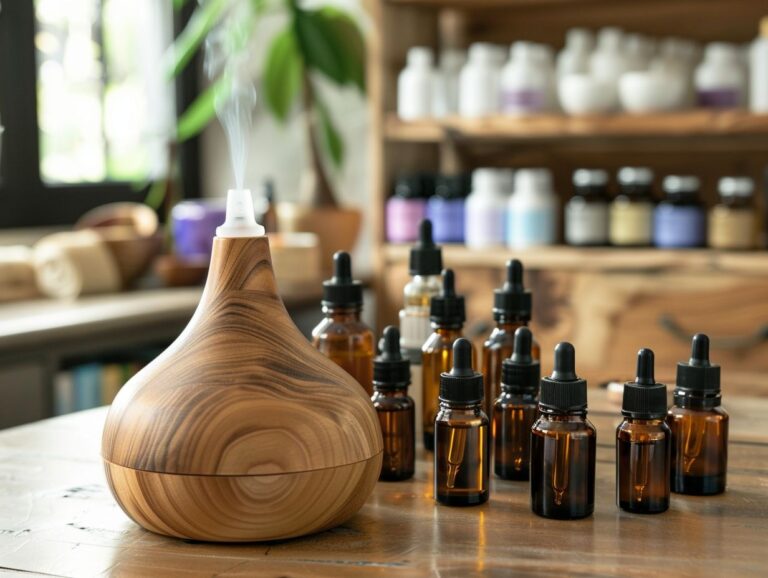

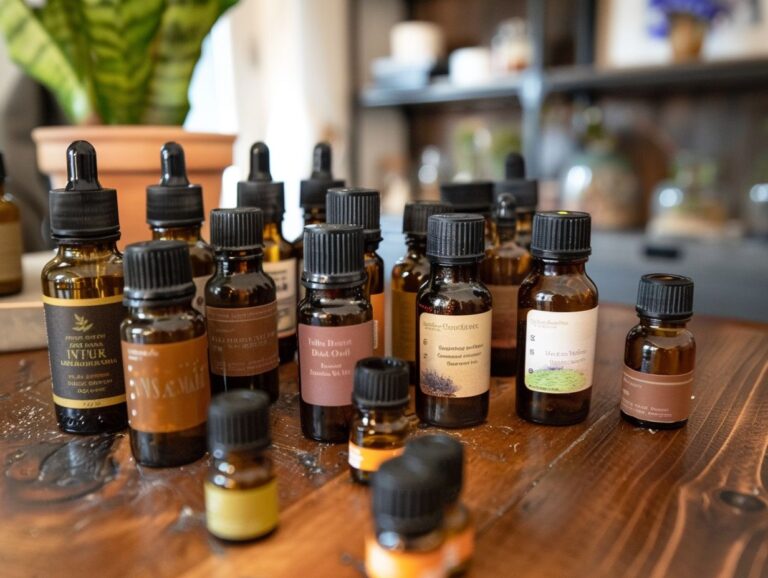

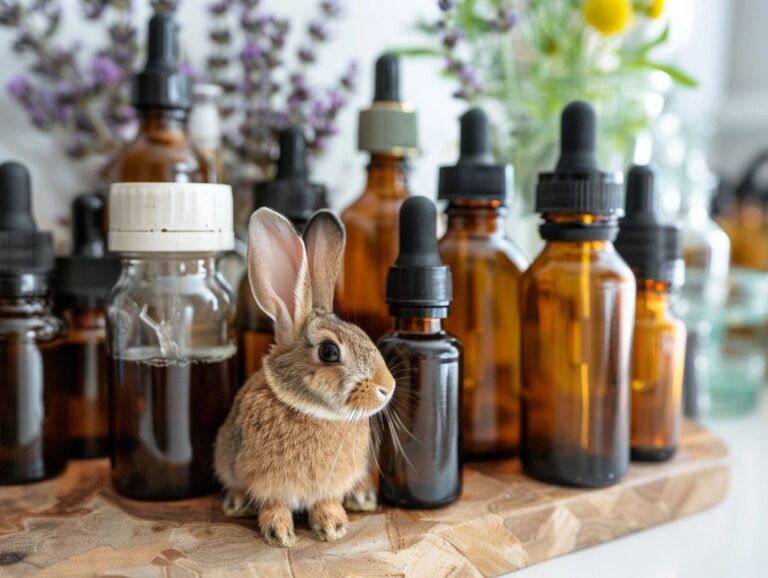
One Comment